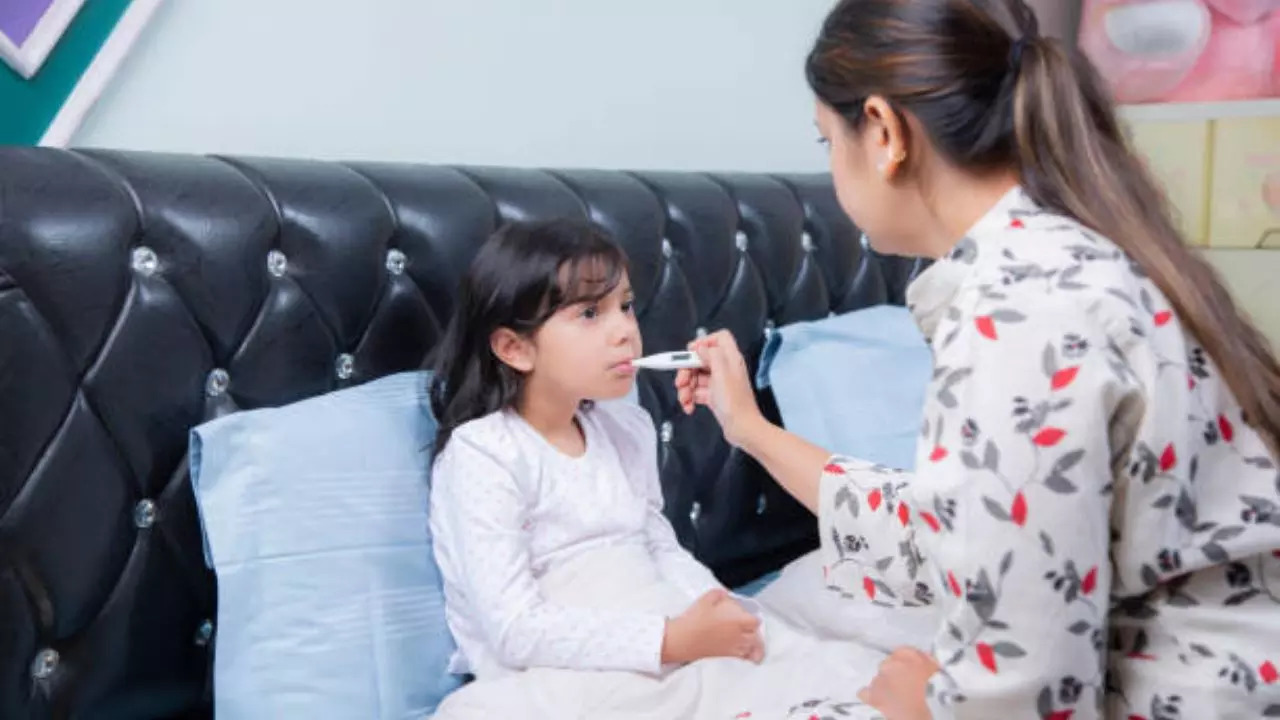How to protect your child from monsoon infections: Essential tips for parents to follow
The monsoon season brings a lot of health risks, especially for children. Parents should be cautious to ensure that their children stay healthy and enjoy the monsoon season without falling ill. For this, they should follow the following easy and effective tips. Read on for more information.

How to keep your baby safe from monsoon infections: Essential tips for parents to follow (Image credit: iStock)
With the onset of monsoon, this year there has been an unexpected rise in cases of conjunctivitis, respiratory infections, viral infections and acute gastrointestinal diseases like typhoid, hepatitis and gastroenteritis. Many children have complained of fever, headache and vomiting, which were later found to be enteroviral meningitis. Dengue fever and malaria are two mosquito-borne diseases that become common as the season progresses. Since children are more vulnerable and prone to diseases, parents need to be extra cautious during the rainy season. Hence, we got in touch with Dr. Priyanka Sinha, Senior Consultant – Pediatrics, Max Hospital Vaishali, who shared some important tips one must keep in mind that can help children stay healthy throughout the monsoon season.
1. Practice good hygiene
The first and most important step is to protect your child from Monsoon transition Practising good hygiene is a must. Dr Priyanka Sinha explains that parents should teach their children to wash their hands frequently with soap and water, especially before meals and after using the toilet. Maintaining good hand hygiene is essential to reduce the risk of infections such as flu, the common cold and gastrointestinal illnesses. Make sure your child also follows basic hygiene rules, such as not touching their face with dirty hands and covering their mouth when coughing or sneezing.
2. Maintain a healthy diet
According to Dr Priyanka Sinha, during the monsoon season, your child’s immune system will greatly benefit from a balanced diet rich in vitamins and minerals. To provide them with the necessary nutrition, include homemade food, fresh produce, and fruits in their diet. Foods rich in vitamin C, such as citrus fruits, can boost immunity and prevent infections. Foods from unhygienic sources, such as street vendors, should be avoided as they can cause gastrointestinal tract diseases. Choose to prepare nutritious and hygienic food at home to ensure that your child gets the necessary nutrients without the risk of contamination.
3. Maintain hydration
Although monsoon brings much-needed relief from the heat, it can also lead to dehydration, which can leave your child feeling weak and tired, Dr Sinha explained. At this time of the year, children often forget to drink water, which can make the problem worse. “Make sure your child drinks boiled or filtered water and encourage them to do so throughout the day. Dehydration increases the risk of waterborne diseases like diarrhoea, apart from lowering immunity. Proper hydration levels can be maintained by including fluids like broths, soups and oral rehydration treatments in their diet,” she said.
4. Wear appropriate clothing
During the monsoon season, it is important to ensure that your child is dressed appropriately for the weather. Make sure their clothes are airy, lightweight and quick-drying, as they dry quickly if they get wet. Children are especially vulnerable to infections due to cold and respiratory problems that come with wearing wet clothes. Encourage your child to wear shoes that protect their feet from muddy water, as this can help avoid leptospirosis and other diseases, explains Dr Priyanka Sinha.
5. Limit your outdoor play time
Monsoon rains may limit outdoor play time, but that doesn’t mean the good times have to end. Children should stay active, but try to limit their outdoor play time during and immediately after heavy rains, explains Dr Priyanka Sinha. Wet and muddy conditions make them vulnerable to a number of diseases, such as fungal infections, leptospirosis and skin allergies. During such times, engage your children in indoor games and puzzles or involve them in arts and crafts.
6. Keep your environment clean
Stagnant water provides breeding grounds for mosquitoes, which spread diseases such as malaria and dengue. A clean environment is needed to reduce the risk of diseases. Dr Priyanka Sinha explains that it is essential to keep your home clean and sanitised regularly; pay special attention to areas that are used frequently, such as light switches, door handles and toys. Make sure your children’s toys are dry and clean. To keep your children safe from mosquito bites, use screens, nets and repellents, especially in the evening and at night when mosquitoes are most active.
7. Stay safe from them Monsoon Insects
Children are at serious risk of health problems due to monsoon insects, especially mosquitoes. To avoid infections like dengue and malaria, you must protect your children from mosquito bites. “To keep insects away from your baby, cover the crib and bed with a mosquito net. When applying insect repellent on exposed skin, especially at night and evening, make sure it is safe for the baby,” he said. Also, use window nets and keep doors and windows properly closed to keep your home safe from insects.
8. Proper vaccination
Getting your child vaccinated can help prevent many of the infections associated with the monsoons. Make sure your child has the most recent vaccination against influenza, hepatitis A, and typhoid fever, she suggests.
9. Quick medical intervention
You should not ignore any symptoms of illness during the monsoon season. Dr. Priyanka Sinha explains that symptoms like fever, cough, diarrhea, vomiting and fatigue are often seen. If your child shows any of these symptoms, take him to the doctor immediately.
Get the latest news on Times Now along with the latest updates and top headlines from health and around the world.


